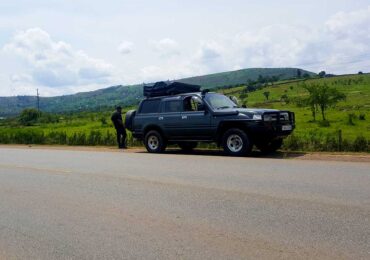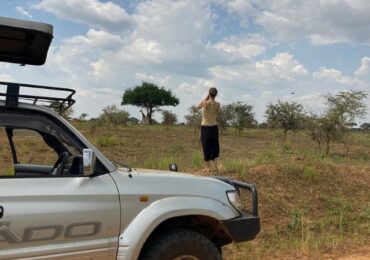
Environmental Conservation Tips for Self-Drive Travelers
Exploring Uganda Sustainably: Environmental Conservation Tips for Self-Drive Travelers. Embarking on a self-drive adventure in Uganda offers an unparalleled opportunity to immerse yourself in the country’s breathtaking landscapes and rich biodiversity. However, with this freedom comes a responsibility to minimize your environmental impact. By following these environmental conservation tips, you can ensure that your journey leaves only footprints and takes away unforgettable memories.

-
Plan Ahead and Pack Light
Before setting off, careful planning can make a significant difference. First and foremost, aim to pack light. Excess weight in your vehicle increases fuel consumption, which in turn leads to higher carbon emissions. Moreover, packing light simplifies your travel, making it easier to manage and reducing the likelihood of leaving waste behind.
-
Choose Eco-Friendly Accommodations
When booking your stay, opt for eco-friendly lodges and campsites. Uganda boasts a number of accommodations that prioritize sustainability through energy conservation, waste management, and support for local communities. By staying at these places, you contribute to environmental conservation efforts and support businesses that value ecological balance.
-
Stick to Designated Paths
While it may be tempting to blaze your own trail, always stick to designated paths and roads. Off-road driving can cause irreversible damage to delicate ecosystems, disturb wildlife, and contribute to soil erosion. Therefore, adhere to park rules and respect the natural habitats you are exploring.
-
Respect Wildlife
One of the highlights of traveling through Uganda is its remarkable wildlife. However, it’s crucial to observe animals from a distance and avoid any interaction that might disrupt their natural behavior. Use binoculars or a camera with a zoom lens for close-up views. Remember, feeding animals or getting too close can cause stress and potentially dangerous situations for both you and the wildlife.
-
Minimize Plastic Use
Plastic waste is a significant environmental problem globally, and Uganda is no exception. To minimize your plastic footprint, bring reusable water bottles, shopping bags, and food containers. Many lodges and campsites provide water refill stations, so take advantage of these to avoid purchasing single-use plastic bottles.
-
Dispose of Waste Responsibly
Proper waste disposal is critical when traveling in natural areas. Carry a small trash bag in your vehicle and collect all your waste, including biodegradable items like fruit peels. Dispose of waste in designated bins, and if none are available, take it with you until you find an appropriate disposal point. For sanitary waste, such as tissues and sanitary products, ensure they are disposed of in proper bins to prevent wildlife from accessing them.
-
Use Biodegradable Products
Switch to biodegradable soaps, shampoos, and detergents to minimize chemical pollution in natural water sources. Many conventional cleaning products contain harmful chemicals that can disrupt aquatic ecosystems. By using eco-friendly products, you reduce your environmental footprint and help protect Uganda’s precious water resources.
-
Support Local Communities
Supporting local communities not only enriches your travel experience but also promotes sustainable tourism. Purchase souvenirs from local artisans, dine at locally-owned restaurants, and hire local guides. This practice not only boosts the local economy but also fosters a sense of stewardship for the environment among local populations.
-
Conserve Water and Energy
Water and energy conservation are essential components of sustainable travel. In Uganda, where water resources can be scarce, practice mindful usage. Take shorter showers, turn off taps tightly, and reuse towels and bed linens to reduce the demand for laundry services. Additionally, conserve energy by turning off lights, air conditioning, and electronic devices when not in use.
-
Participate in Conservation Activities
Many conservation programs and initiatives operate throughout Uganda, offering opportunities for travelers to contribute. Consider participating in activities such as tree planting, wildlife monitoring, or community clean-up projects. Engaging in these efforts not only supports local conservation but also deepens your connection to the environment. Environmental Conservation Tips for Self-Drive Travelers.
-
Educate Yourself and Others
Lastly, education is a powerful tool for environmental conservation. Take time to learn about Uganda’s ecosystems, conservation challenges, and the importance of biodiversity. Share your knowledge with fellow travelers and local communities to raise awareness and inspire collective action towards sustainability.

Conclusion
In summary, self-drive travel in Uganda provides a unique and flexible way to explore this stunning country, but it also comes with a responsibility to protect the environment. By planning ahead, respecting wildlife, minimizing waste, and supporting local communities, you can make a positive impact. Sustainable travel is not just about reducing your footprint; it’s about enriching your journey and ensuring that Uganda’s natural beauty remains for future generations to enjoy. Embrace these conservation tips, and embark on a journey that honors and preserves the extraordinary landscapes and wildlife of Uganda.
Related Posts;
